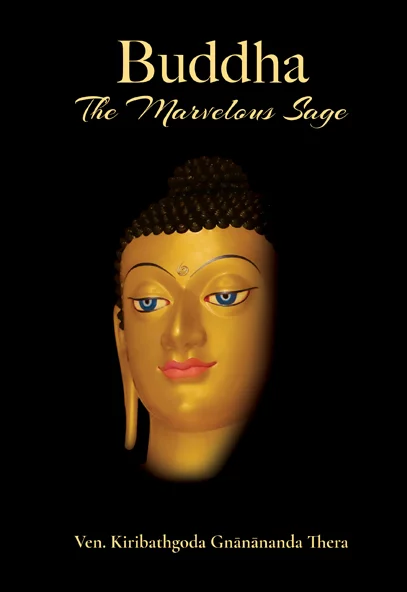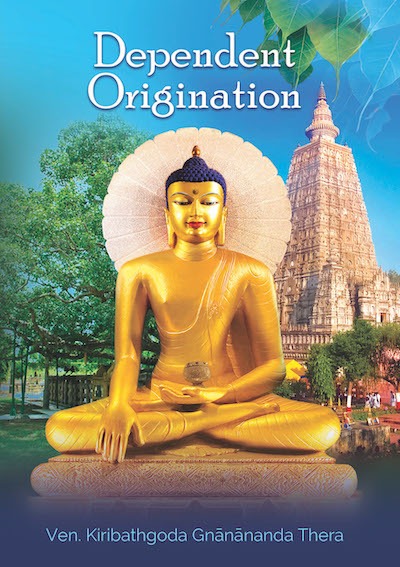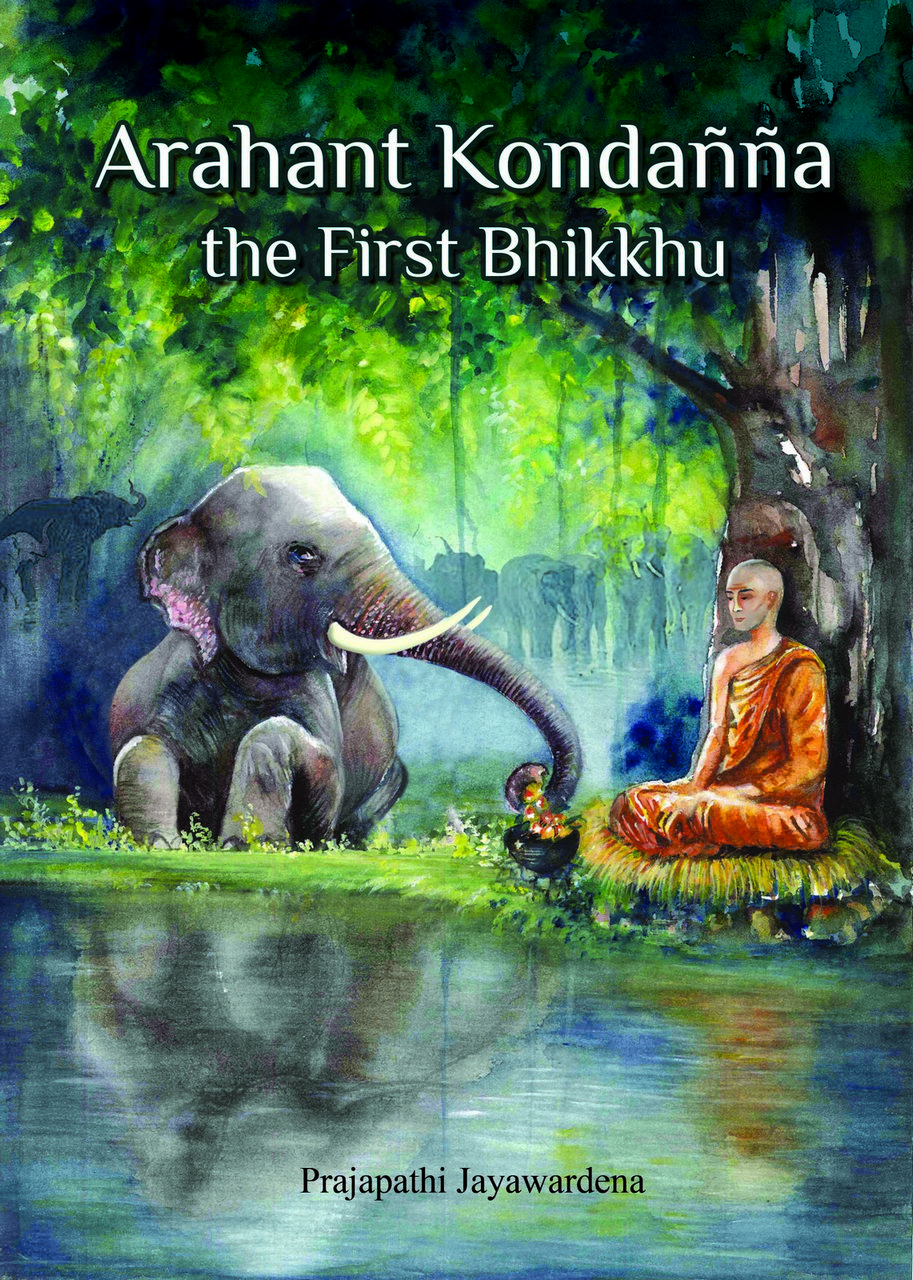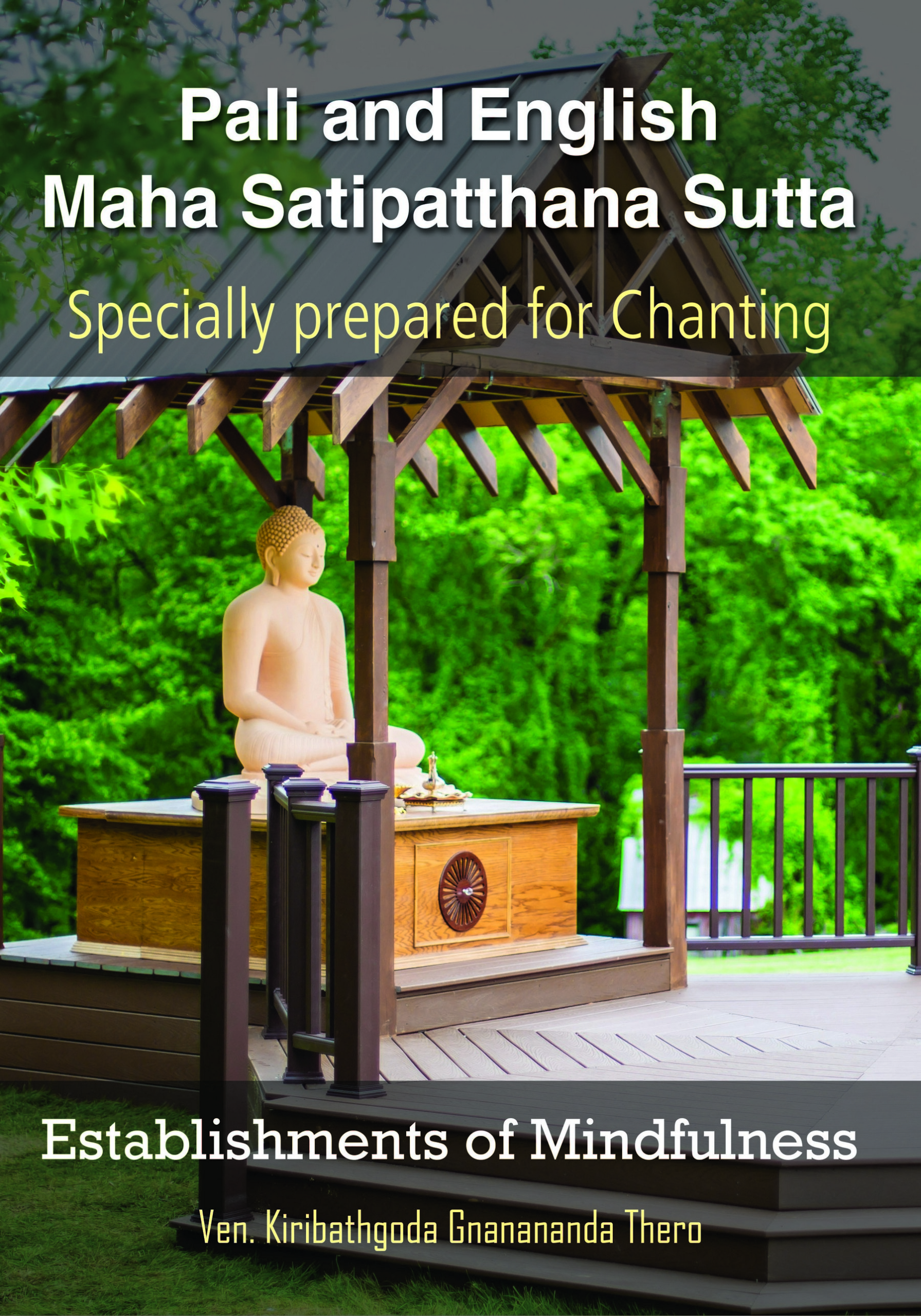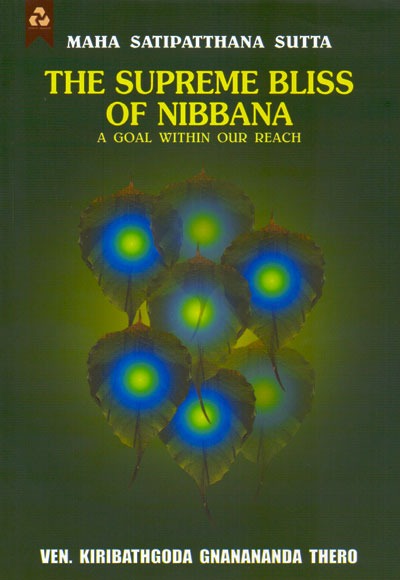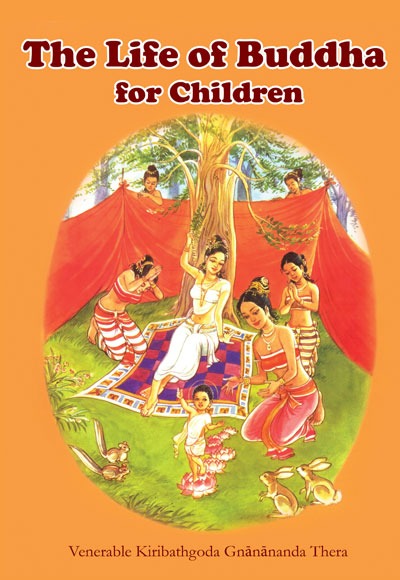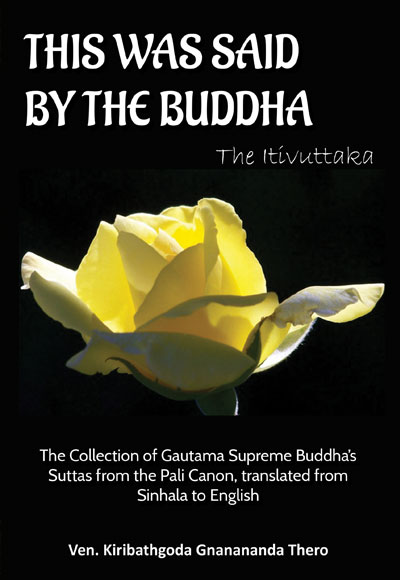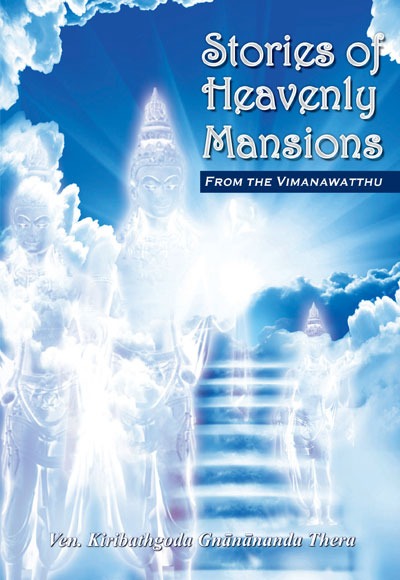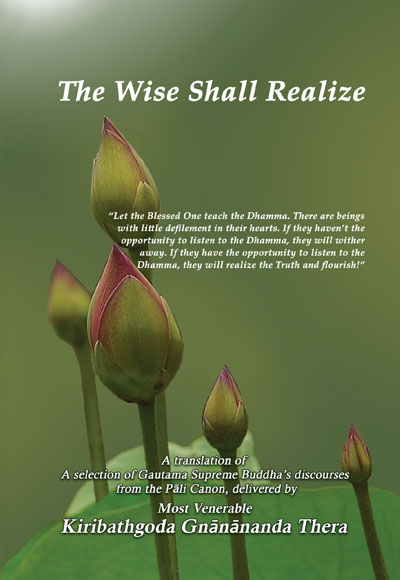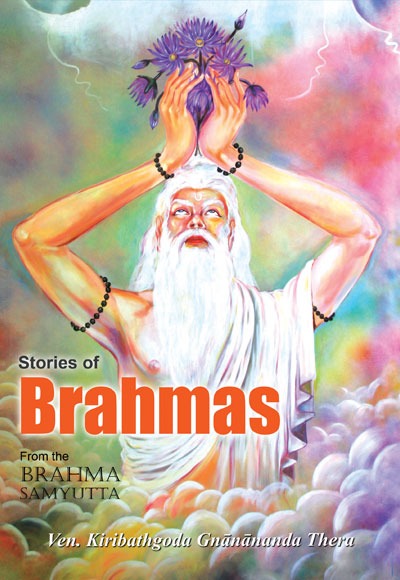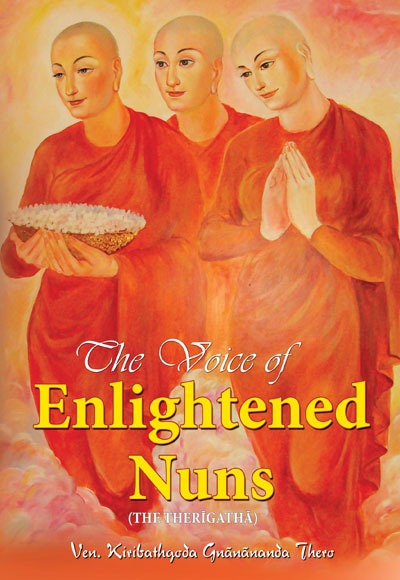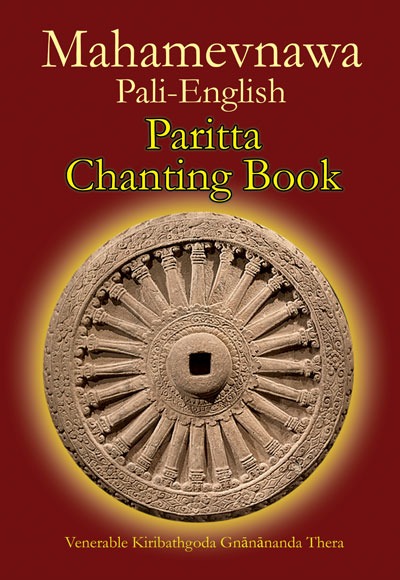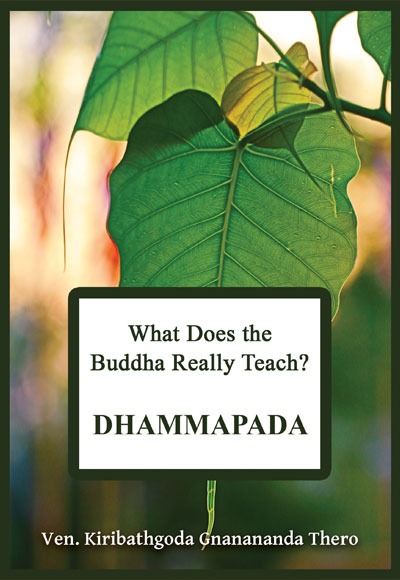In this book you will learn about the life of Sakka, the lord of the gods. You will hear many of his conversations with the Buddha as well as debates with other gods. Additionally, you will learn about Sakka’s previous life as a human and the good actions he did that lead to his rebirth as a god. Stories of Sakka, Lord of Gods, is a translation of the Sakkasamyutta found in the Samyutta Nikaya of the Sutta Pitaka.
The Suvīra Chapter
1. Suvīra Suttaṁ: The Discourse about the Deity Suvīra
2. Susīma Suttaṁ: The Discourse about the Deity Susīma
3. Dhajagga Suttaṁ: The Discourse about the Top of the Flag
4. Vepacitti: The Discourse about Vepacitti
5. Subhāsita Jaya Suttaṁ: Victory by Well-Spoken Words
6. Kulāvaka Suttaṁ: The Bird Nests
7. Na Dubbhiya Suttaṁ: One Should Not Betray
8. Verocana Asurinda Suttaṁ: Verocana Lord of the Titans
9. Araññāyatana Isi Suttaṁ: The Discourse about the Seers in the Forest
10. Isayosamuddaka Suttaṁ: The Discourse about the Seers along the Shore of the
Ocean
The Seven Noble Promises Chapter
11. Deva Sattavatapada Suttaṁ: The Discourse about the Noble Promises of God
Sakka
12. Dutiya Deva Sattavatapada Suttaṁ: The Second Discourse about the Noble Promises of God Sakka
13. Mahāli Sattavatapada Suttaṁ: The Discourse about the Noble Promises Given to Mahāli the Licchavi
14. Dallidda Suttaṁ: The Discourse about a Poor Man
15. Rāmaneyyaka Suttaṁ: A Delightful Place
16. Yajamāna Suttaṁ: The Discourse about Sacrifices
17. Vandanā Suttaṁ: The Discourse about Veneration
18. Sakka Namassana Suttaṁ: The Discourse about the Worship of Sakka
19. Dutiya Sakka Namassana Suttaṁ: The Second Discourse about the Worship of Sakka
20. Tatiya Sakka Namassana Suttaṁ: The Third Discourse about the Worship of Sakka
The Sakka Chapter
21. Jhatva Suttaṁ: The Discourse about Burning
22. Dubbanniya Suttaṁ: The Discourse about Being Ugly
23. Māyā Suttaṁ: The Discourse about Magic
24. Accaya Suttaṁ: The Discourse about Offence
25. Akkodha Suttaṁ: The Discourse about Non-anger
11. Deva Sattavatapada Suttaṁ: The Discourse about the Noble Promises of God Sakka
This is how I heard. One time the Blessed One was staying in the province of Sāvatthi, in Jeta’s park, at Anāthapiṇḍika’s Monastery.
There, the Blessed One taught this:
“Monks, in the past, when Sakka, lord of the gods, was a human, he practised the seven noble promises. Since he did that, he achieved the position of Sakka, lord of the gods. What were those seven noble promises?
1. As long as I live may I help my parents.
2. As long as I live may I respect the family elders.
3. As long as I live may I speak gently.
4. As long as I live may I not speak divisively.
5. As long as I live may I live at home without greediness, removing the stain of stinginess, open-handed, always ready to give, always free to help others, delighting in giving and sharing, and well organized in giving charity.
6. As long as I live may I speak the truth.
7. As long as I live may I be free from anger, and if anger should arise in me, may I remove it quickly.
“Monks, in the past, when Sakka, lord of the gods, was a human, he practised these noble seven promises. Since he did that, he achieved the position of Sakka, lord of the gods.”
(A verse)
When a person supports his parents, respects the family elders, speaks gentle and pleasing words, does not speak divisive words, removes greediness, speaks truthfully, and controls their anger, the Tāvatiṁsa gods call him a truly superior person.
21. Jhatva Suttaṁ: The Discourse about Burning
This is how I heard. At one time, the Blessed One was staying in Anāthapiṇḍika’s monastery at Jeta’s garden in the province of Sāvatthi. Then Sakka, lord of the gods, went to the Blessed One, paid homage to the Blessed one and stood to one side. Then Sakka, lord of the gods, asked the Blessed One a question in verse:
“Oh venerable Gotama, what does one need to burn to sleep peacefully? What does one need to burn to not sorrow? What is the one thing whose killing you would approve?”
The Blessed One:
“Oh God Sakka, having burned anger one sleeps peacefully. Having burned anger one does not sorrow. The killing of anger with its poisoned root and honeyed tip (taking revenge) is the killing that the noble ones praise. Having burned anger indeed one does not sorrow.”
22. Dubbanniya Suttaṁ: The Discourse about Being Ugly
At Sāvatthi. There, the Blessed One said this: “Monks, once in the past a certain ugly and deformed demon sat down on the seat of Sakka, lord of the gods. At that time monks, the Tāvatiṁsa gods found fault with this, grumbled, and complained about it, saying, ‘It is wonderful indeed sir! It is amazing indeed, sir! This ugly, deformed demon has sat down on the seat of Sakka, lord of the gods!’
“But to whatever extent the Tāvatiṁsa gods found fault with this, grumbled, and complained about it, to that extent the demon became more and more handsome, more and more attractive, more and more bright.
“Then monks, the Tāvatiṁsa gods went to Sakka, lord of the gods and said to him: ‘Here, dear sir, an ugly, deformed demon has sat down on your seat. Then lord, the Tāvatiṁsa gods found fault with this and complained about it, saying: “It is wonderful indeed sir! It is amazing indeed, sir! This ugly, deformed demon has sat down on the seat of Sakka, Lord of the gods!” But lord, to whatever extent the Tāvatiṁsa gods found fault with this, grumbled, and complained about it, to that extent that demon became more and more handsome, more and more attractive, more and more bright.’
“‘Oh sirs, that must be the anger-eating demon,’ said Sakka. Then monks, Sakka, Lord of the gods, went to the anger-eating demon. Having gone, he put his upper cloth over one shoulder, knelt down with his right knee on the ground, and, putting his hands together worshiping respectfully the anger-eating demon, he said his own name three times: ‘I, dear sir, am Sakka, lord of the gods! I, dear sir, am Sakka, lord of the gods!’
“To whatever extent Sakka, lord of the gods, said his name, to the same extent that demon became uglier and uglier and more and more deformed until he disappeared right there.
“Then, monks, having sat down on his own seat, instructing the Tāvatiṁsa gods, Sakka, lord of the gods, on that occasion recited these verses:
“‘I am not one who hurts his own mind, nor is easily taken by anger. I have not gotten angry for a long time. Therefore anger does not stay in me.
“‘When I’m angry I do not speak harshly, I only speak beneficial words. Seeing the benefit that comes to me from that patience, I always focus on my own faults.’”

In Sri Lanka
All of these books are available at the book shops in our monasteries and our online store Mahamegha.store
In Colombo they are available at the Tripitaka Sadaham Poth Medura in the YMBA building on Austin Place. Phone 01 14 255 987.

